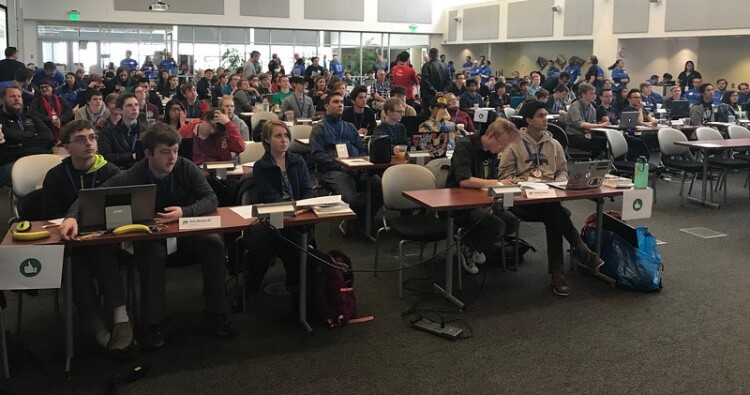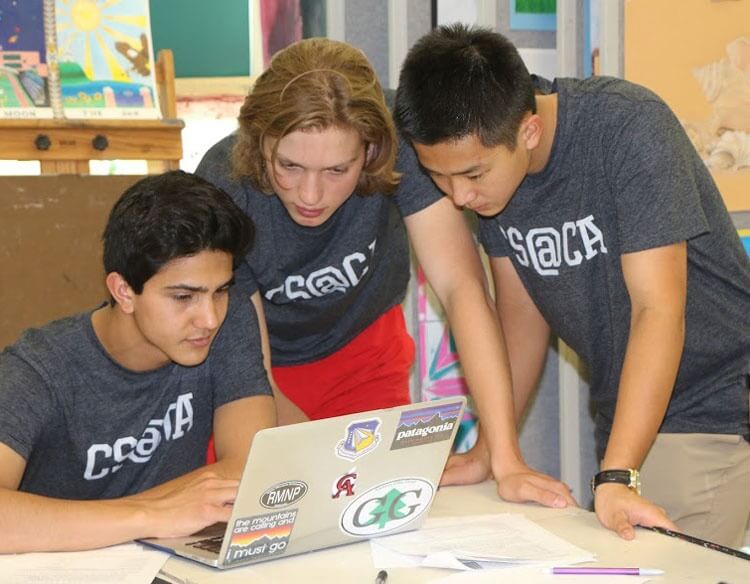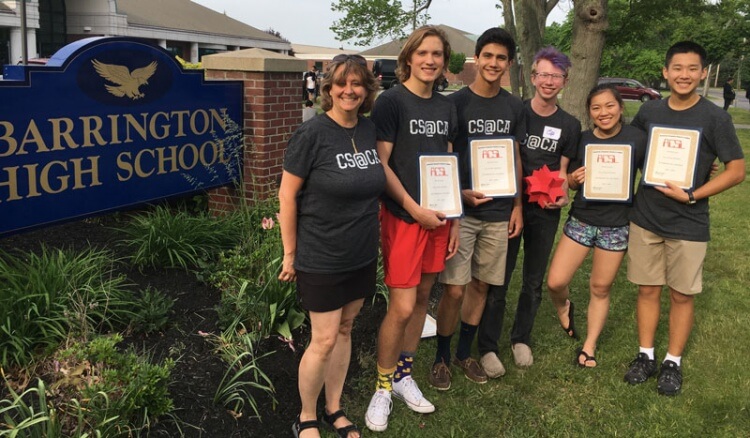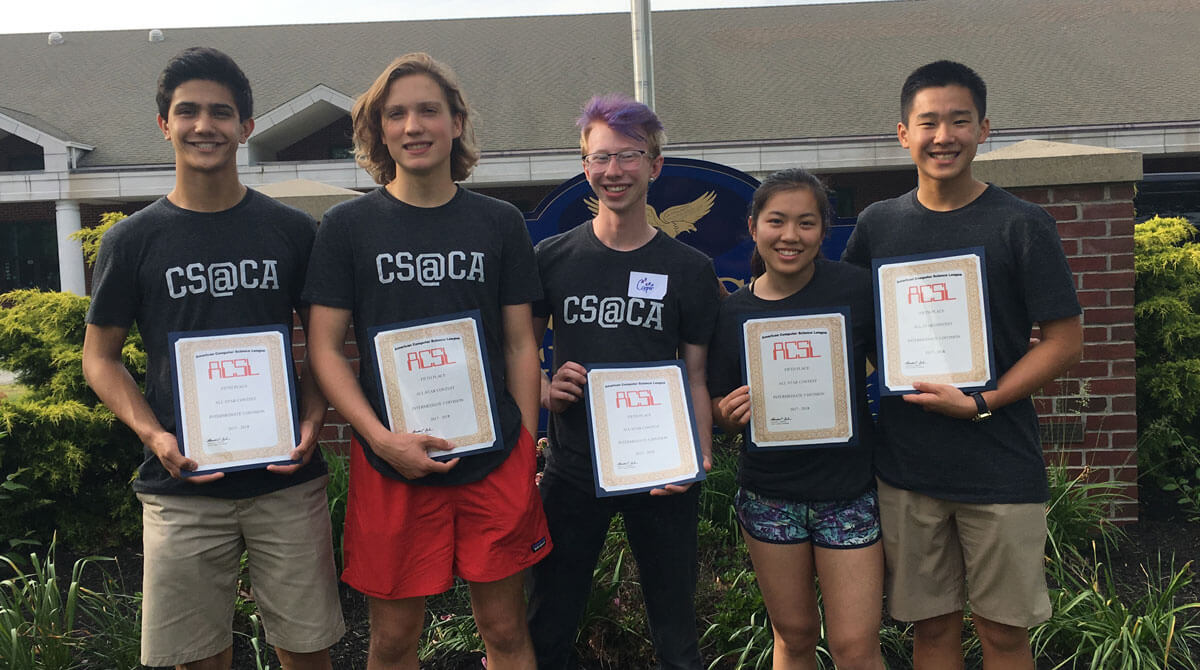While many Colorado Academy students took a break over Memorial Day weekend, one of CA’s teams was sweating out its toughest competition of the year. When you hear about a competition, you might not immediately think about programming or coding. But top Upper School computer science students Eric Bear, Cooper Bedin, Alena Holbert, Alex Kim, and Will Smart traveled to Providence, R.I. to compete in the American Computer Science League (ACSL) National All-Star Competition. They came in fifth out of 20 teams, the highest that CA has ever placed in the tournament.
This year’s All-Star Competition caps Bear’s three years of competing for CA in ACSL. As he looks back, he sees the incredible opportunity it provided to “compete alongside students who share a passion for computer science and problem-solving.”
‘A way to apply what I’ve learned’
Qualifying for the All-Star Competition doesn’t come without putting in extra time and effort. On every C day after school, students in ACSL meet with Computer Science Department head Kimberly Jans and practice for the upcoming competitions. They cover Boolean Algebra, programming, logic, and other topics that aren’t covered in class.
“Competitions are an awesome way for the students to celebrate their talents,” says Jans. “They help take knowledge outside of the classroom.”

ACSL competitions consist of a written and a programming portion and provide students with sample questions beforehand so they know what to expect. After all the time and work they put in to learn the material, Holbert says “competitions give a sort of end goal, a way to apply what I’ve learned.”
For Bedin, competitions are a place to challenge oneself and to meet people with the same interests. “You learn how to make a solitary passion into a team passion,” he says. “You get to learn a lot of topics you don’t get to learn in class.”
‘It’s really fun’
ACSL is just one of the many competitions that CA students have participated in this year. They have also competed in an online Girls Go Cybersecurity contest, HP’s CodeWars, the Colorado School of Mines Programming Competition, and Lockheed Martin’s CodeQuest.
Each of these events required students to work as part of a team, helping to buck the stereotype that computer science is an individual activity. “I didn’t really know what I was getting into, but it’s really fun,” Holbert admits. “I like to work through the problems and work as a team.”

With each year that he has been at CA, Bedin has noticed that more students have become interested in computer science. Holbert acknowledges that as the program grows, they are “breaking stereotypes. There’s a lot of diversity in the kids who are interested in it.”
“Computer science can be really fun,” Bedin says. “It’s really magical to make things that work but that are also kind of you.”
‘It’s inspiring’
Since the inception of the computer science program at CA 17 years ago, one of Jans’s number-one goals has been to get girls involved. Holbert is the first and only girl to have represented CA at the ACSL All-Star competition, which CA has qualified for since 2012. “In the computer science field it’s mostly men,” says Holbert, “so it’s really cool to have Ms. Jans be so good at it. It’s inspiring.”
Jans, a Master Teacher, has spent her career at CA establishing the computer science program and encouraging students to become interested in it. The success of the computer science program she started is highlighted every time another student signs up for a class or joins ACSL, and the profile of CA’s program is raised when students do well at competitions.

“I love seeing them excited about coding,” says Jans with a smile as she points to the trophies on display in the corner of her classroom. “It’s been my life’s work.”
At this year’s All-Star competition, only five points separated the top five teams, showing how competitive CA’s computer science program is at the international level. The CA students who participate in ACSL and other coding competitions may not have a jersey, gear, or a designated field to practice on, but they are a team. They apply themselves in practice and showcase their hard work and what they know at competitions. And oftentimes, they come home with a trophy.
